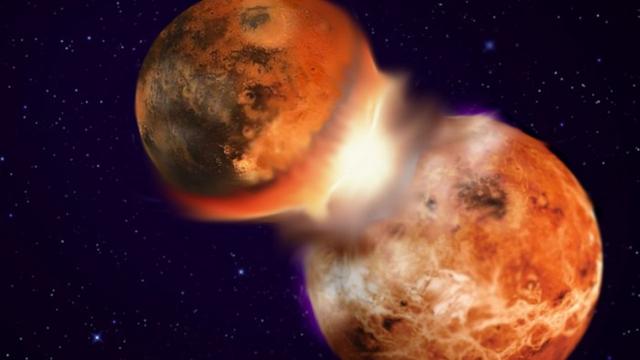According to some scientists, the earth itself did not exist billions of years ago, but about 4.6 billion years ago, a giant interstellar molecular cloud gravitationally collapsed to form the solar system. Some dwarf planets, moons, asteroids and other bodies that are somewhat smaller in size than the planets. This is how our home on earth was formed, but in the early days of its formation the earth was not as beautiful as it is today, the newly born earth was shown to be made up of magma, a boiling 'ocean' if you will.
Later, as the earth's surface temperature began to drop, the magma slowly cooled and solidified to form hard rock. At the same time, the earth's interior released gases such as carbon dioxide and water vapour, which cooled to form rainfall, which continued to fall on the solidified surface of the earth and became lakes and oceans, creating the distribution of land and water we see today. The drop in temperature and the appearance of oceans also created a good condition for the earth to nurture life.
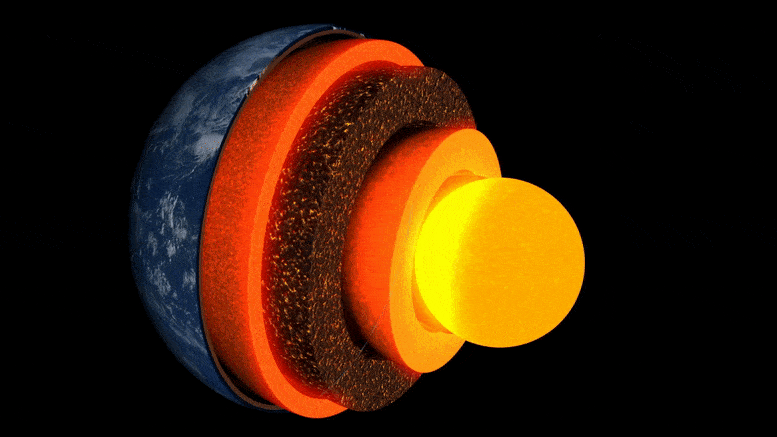
While the earth's surface is a favourable environment and the temperature is perfect, there is actually a hot 'inside' of the earth. The earth's interior is the same as that of other earth-like planets. On the earth's surface is the crust, made up of silicate minerals, and the ground we are standing on is above the crust. Beyond the crust is a mantle of viscous solids, separated from the crust by a moho discontinuity. Beyond the mantle is the earth's core, the innermost core of the planet, which has a radius of about 3,470 km and is composed mainly of iron and nickel elements. The average temperature of the earth's surface is just over ten degrees celsius, but in the innermost core of the earth the temperature can reach 4000-6800 degrees celsius. Because of the extremely high temperatures, the earth's interior is actually in a molten or near-liquid state, and not solid like the surface. Since the liquid material inside the earth flows slowly, some people believe that the formation of the earth's magnetic field may have something to do with the earth's core.
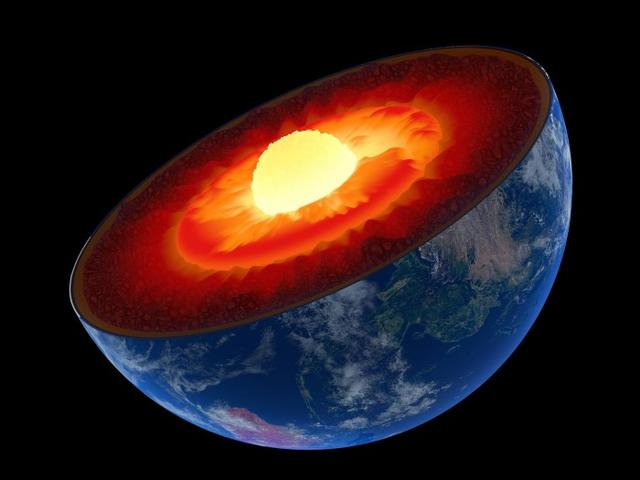
The presence of a magnetic field is really important for the earth to nurture life. Because there is so much radiation of all kinds from the universe, it can be very damaging to life, and if this strong radiation from the depths of the universe reached right to the surface of the earth, life on earth might cease to exist. Fortunately, the earth's magnetic field is able to protect us as life from this radiation. There are some arguments that mars' environment has changed from the warm, humid world it once was to the desolate landscape it is now, possibly because of its relatively small size and the fact that the interior cooled too quickly for the interior to maintain a magnetic field, eventually leaving the surface of mars directly exposed to strong radiation such as the solar wind, which deprived the planet of its atmosphere in the presence of this strong radiation. Given that mars' environment is capable of dramatic changes, there is also some concern that in the future the earth will become like mars. It is true that the earth's interior is cooling, and there are some studies that suggest that the earth's interior is cooling faster than expected.
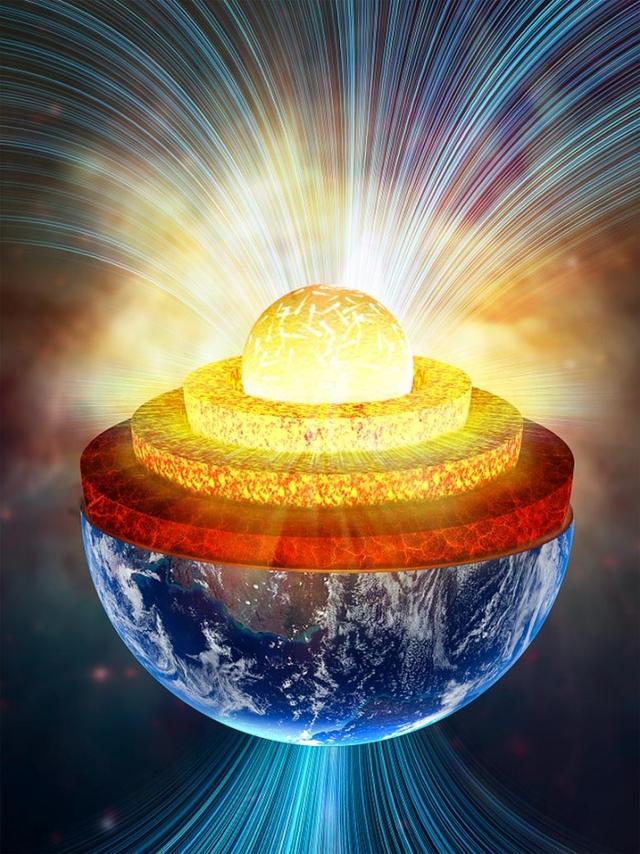
A study published in earth and planetary science letters states that scientists have found that the heat transfer capacity of the earth's mantle and core boundary is much greater than expected, at least 1.5 times greater than previously thought by scientists. In other words, the heat transfer capacity of the earth's interior is greater than we had previously expected, and the greater the heat transfer capacity, the faster the earth's interior will release heat, and the faster the earth's interior will cool, and once the earth's hot "Inner" Temperature drops to a certain level, it could face the same situation as mars, such as the disappearance of the magnetic field, the the more the earth's hot 'inner' temperature drops to a certain level, the more it could face the same conditions as mars, such as a loss of magnetic field and a decrease in the activity of geological plates.
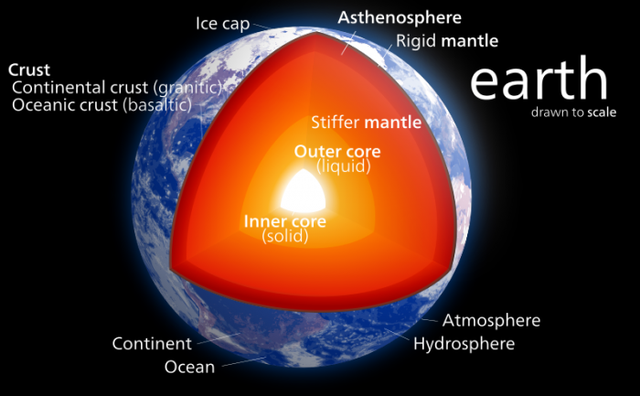
Although scientists have found that the earth's interior is cooling much faster than previously expected, we should not be too worried. Because it has been billions of years since the earth was born, the earth's interior has actually been cooling during these past billions of years, and it is not just now that the earth's interior is cooling. So this this is a very normal phenomenon, and the reason why it is happening faster than we expected is down to our lack of knowledge of the earth's interior, which has led to our previous predictions of the rate of cooling of the earth's interior being a bit off.
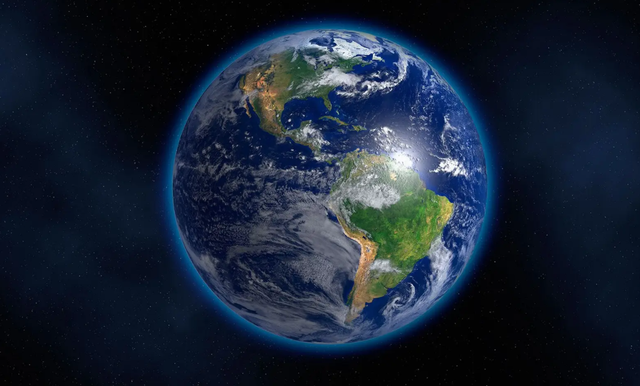
What about the future of humanity?
In terms of cooling, it is inevitable that the earth's interior will "Cool down". Although the earth's internal temperature will not drop dramatically in a short period of time, it will become more obvious over the years, for example, in another ten million or hundreds of millions of years, and the problems caused by this phenomenon may not be ignored. If the earth cools down to a certain point in the future, it may become as dead and uninhabitable as mars, and where will humanity go from there?

Obviously, if the earth does become uninhabitable in the future, the only way out for humans is to migrate to an alien planet. Although for the time being it is still a pipe dream, we have already mastered the technology of manned spaceflight, and we have already achieved a manned landing on the moon in the 1960s. It may only be a matter of time before we can get out of our solar system and reach habitable exoplanets.

So far, scientists have discovered more than 4,000 exoplanets, and while most exoplanets have harsh environments where temperatures may be high or low, there are some exoplanets that have relatively favourable environments, and scientists have selected 24 'super-habitable' planets from the known 4,000 exoplanets that they believe to be scientists have selected 24 'super-habitable' planets from more than 4,000 known exoplanets and believe that living on these 'super-habitable' planets could be more comfortable than on earth.


